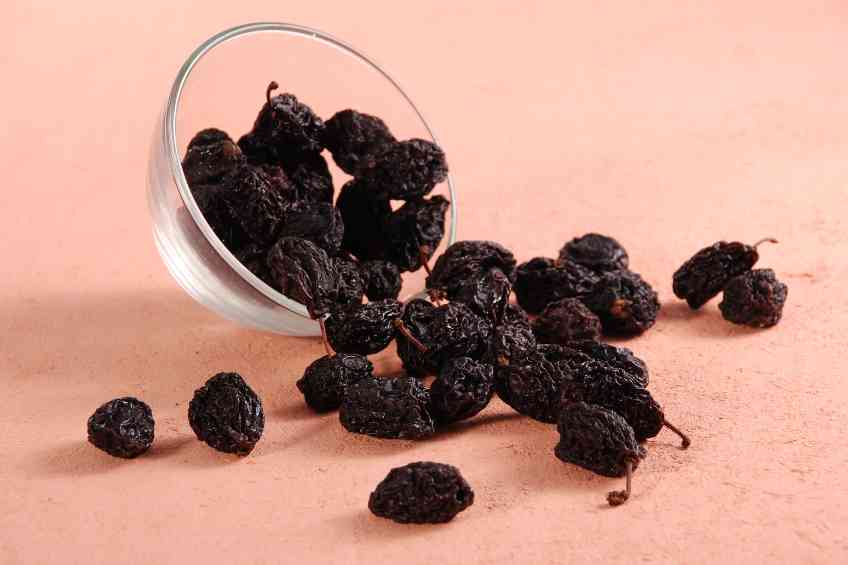The Skinny:
There is a lot of give and take when it comes to prunes, which are dried plums. Oh yes, not all plums are worthy and are being dried into prunes. The best prunes come from European plums, in case anyone was wondering. Prune sales suffered in the U.S. for years because their sales pitch focused on helping bowel movements. Let’s face it, that kind of marketing only goes so far. They face another challenge over the popular connotation of a prune, which the Oxford Dictionary describes as an old unpleasant or disagreeable person. In contrast, a full-body prune in the form of a plum is highly desirable, as in “a plum assignment.” None of these descriptions address the heart of the matter. The health benefits of prunes are deep and far-reaching and, yes. WellWell has dug them out. Read on.
The Slate:
Nutrition Boatload
One simple prune, about 10 grams, has 11 calories, almost 3 grams of carbohydrates, no fats and a hint of protein. They also have lots of nutrients and vitamins. One cup, for example, provides 87 percent of the recommended daily intake of vitamin K, more than 20 percent of most B vitamins, 8 percent of calcium and 27 percent of potassium. Prunes are rich in fiber, potassium, iron and beta-carotene.
Power Vision
Prunes are loaded with vitamin A, which helps protect against night blindness, dry eyes, macular degeneration and cataracts. The vitamin C in prunes is also good for fighting cataracts.
Antioxidants Abound
Prunes are deep in antioxidants, especially two caffeoylquinic acids that can help lower blood glucose and bad cholesterol levels. These antioxidants also protect cells from damage that can cause accelerated aging, chronic inflammation and other chronic diseases.
Hearty Good
Daily consumption of prunes over six months can reduce the risk of cardiovascular disease, especially in postmenopausal women, according to San Diego State University. The researchers attributed these benefits to the antioxidant and anti-inflammatory properties of prunes.
Fights Osteoporosis
Eating five or six prunes daily can help preserve bone mineral density in postmenopausal women, reducing their risk of related fracture risk, Pennsylvania State University reports. Prunes also may help reduce proinflammatory cytokines, markers of inflammation that can contribute to bone loss.
Aids Hair & Skin
Prunes may be wrinkly, but their antioxidants help skin and hair maintain a youthful look. They work to repair damaged cells in the skin and hair follicles, offsetting the appearance of early aging. The iron and vitamins B and C in prunes keep hair soft and limit graying.
Better Bowels
Yes, prunes are a natural remedy for constipation because they are high in fiber. The sorbitol in prunes also helps by pulling moisture into the digestive tract. One note: too many prunes can cause diarrhea.
Eyes Up:
Do you love prunes? Tell us why at Info@WellWellUSA.com.
WellWell editors independently identify services and products of interest. If readers purchase anything through the associated links, WellWell may earn a commission, which goes to support our work. Learn More.











